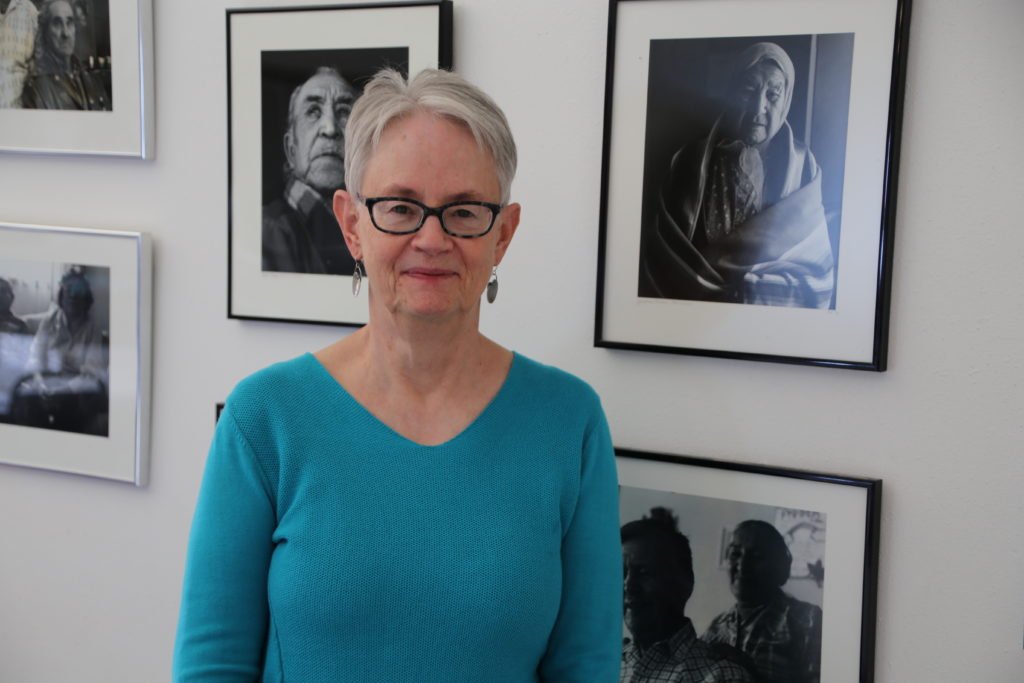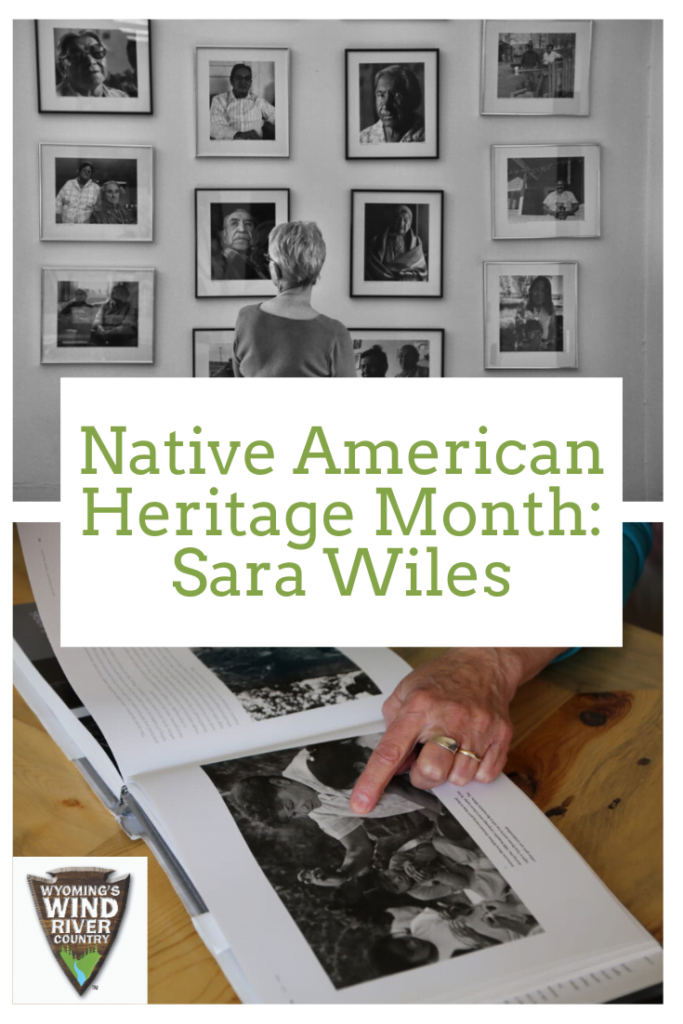June 19, 2019
By Darrah Good Voice Elk, Wind River Reservation
These photographs are the proof of the healing that resonates throughout all American history. Sara Wiles, a former counselor and anthropologist, is using her communication skills and background to help in the identification of Native American traumas, setbacks, and progress within a Native community. From Indiana where Wiles grew up and attended schools, she felt that she had a calling to help in ways that only she could. Through preserving culture and the American Indian identity that not too many people take a second glance at, Wiles is making a lasting impression in the towns of the Wind River Reservation and surrounding communities as a photographer and writer.
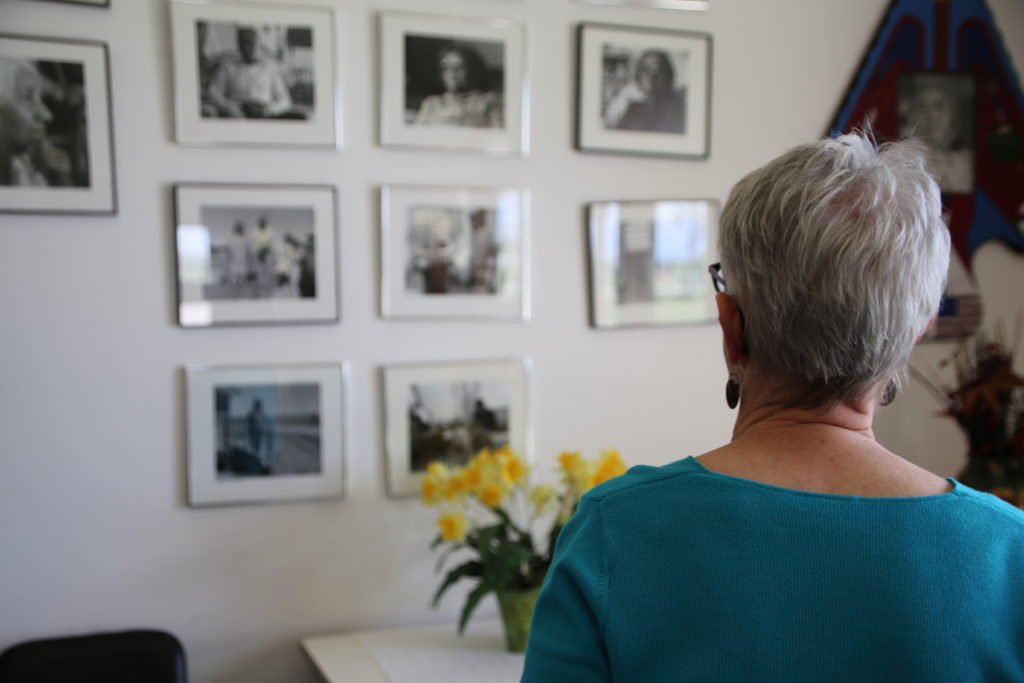
<
A lot of the reason Wiles feels passion for what she does on the Wind River Reservation is the idea of the commonality—that Native Americans are too people, who each has a powerful story to tell in why culture has slowly started to become lost. She feels the pressing need to continue learning family names and how legacy plays an important part in the saving of a tribal body and a sovereign nation. Wiles tells her own story with love and respect, and in a way that has gained the support of tribal elders, which is not an easy thing to do. Trust, in Native communities upon tribal lands, slowly deteriorates, when it comes to progressive collaborations with outsiders. Wiles has proven that with a firm heart, passion for the work she does, intuition, and treating people with integrity, respect can be gained.
Having been a witness to America’s turmoil over the expansion by white settlers, Wiles continues to tell the stories of the Indigenous Ancestors to whom this land rightly belonged. She has brought to life stories that only the elder storytellers could impart. Wiles has made a lasting impression within the Native community and by never giving up and believing in beloved truth, she has continued to break down barriers that not every Anglo-European has wanted to face. Women overall, have faced many challenges and Wiles believes many of the challenges faced by women have not only strengthened character but, have also highlighted successes. Wiles believes women have gracefully adapted to the march of change. Early in her efforts of healing the Reservation community, Wiles never felt like she fit in. Then, she was adopted into an Arapaho family where she began having the sense of what family ties mean. On the Wind River Reservation, Wiles began documenting the people and faces of her friends and new family. She visited the local senior center on a regular basis to take pictures and hear the stories of those who began to trust her.
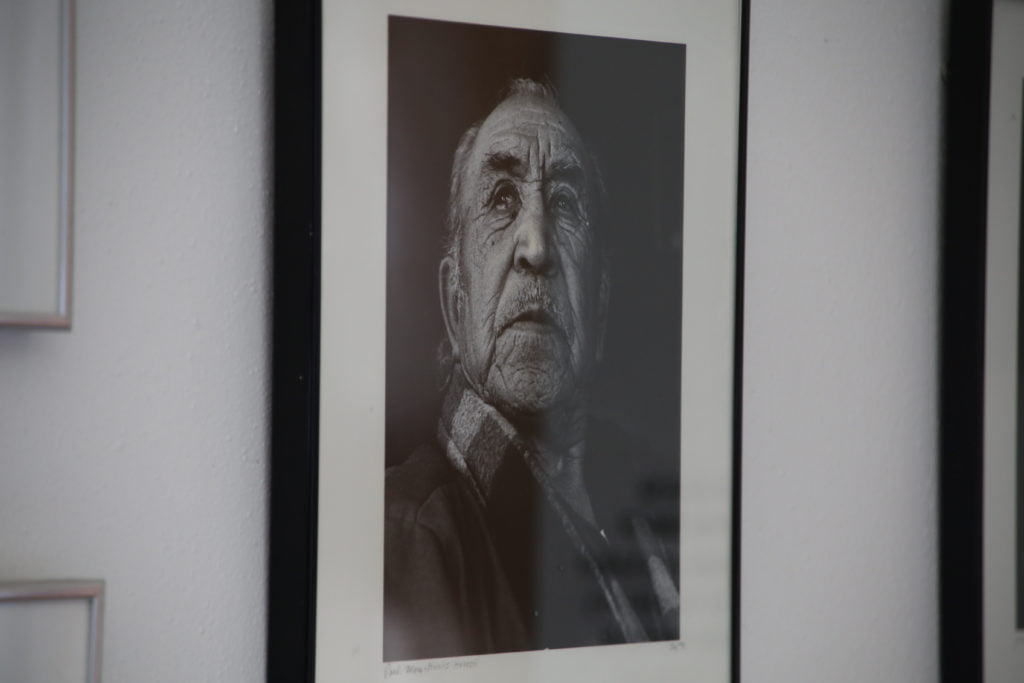
Wiles says having affection is what gave her passion. Seeing a lot of the problems on the Reservation didn’t persuade her to think or believe differently. She instead focused on the positive aspects of the people and surrounding places. By diving into uplifting descriptions of the Wind River Reservation, Wiles took battling marginalization to a whole new level. Handling frustrations while trying to respectfully communicate within newly established relationships within the Native community, Wiles began to understand that forcing things never worked, and by letting things happen naturally was the way to be a friend, ally, and a good family member.
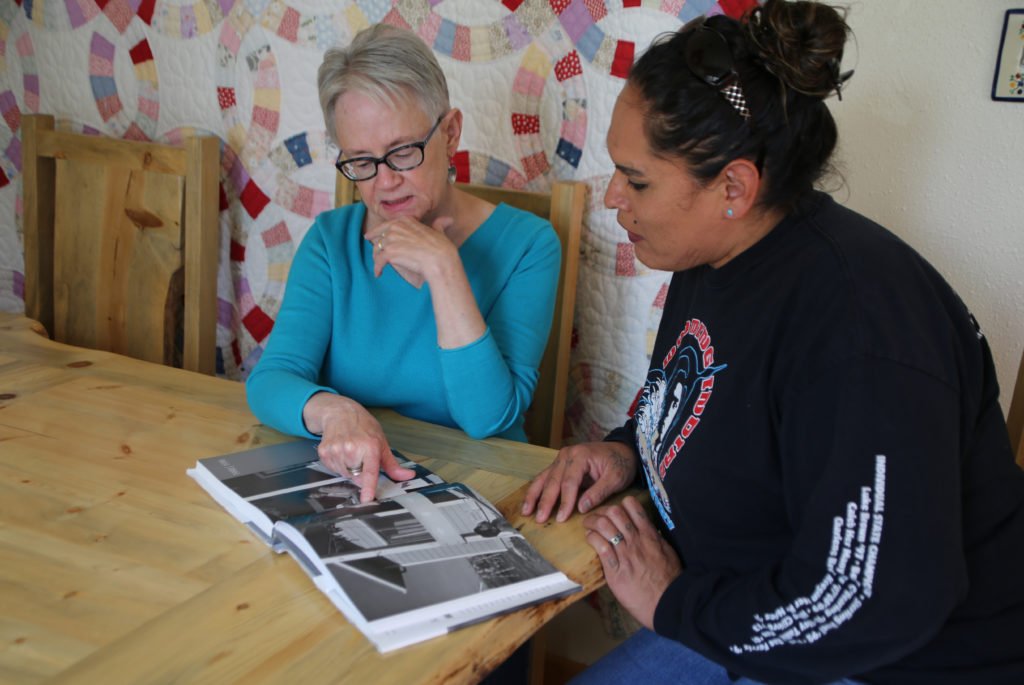
“Respect is earned,” Wiles stated, “the way I relate is by letting friendships evolve naturally and never forcefully.” In this way, she developed connections with many families on the Wind River Reservation. Wiles began capturing moments with photographs and interviews, learning more about the roles of the people upon the Reservation. She recalls how the invention of the cell phone made connections easier when she was a social worker but, yet, she continued to visit in person because of the strong connection it had with keeping trust alive.
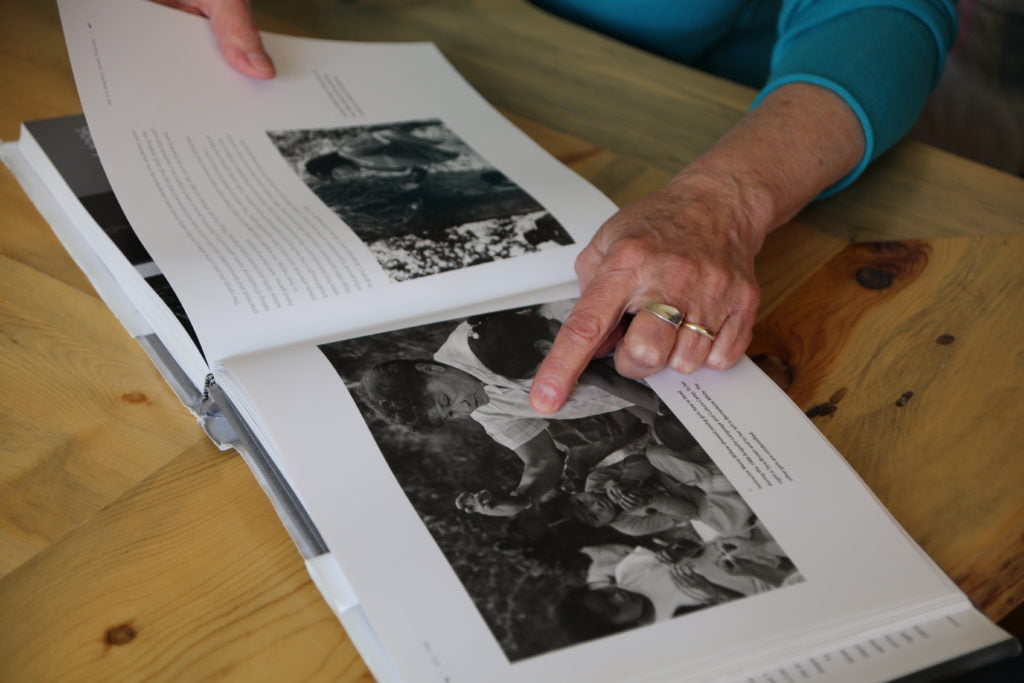
“In having hope for a better tomorrow, personal connections are important,” Wiles says. Over the decades, Wiles’ relationships with tribal members and non-tribal members across Wind River Country have inspired a domino effect of acceptance. The legacy Wiles would like to leave for future generations lies within her work as a photographer and journalist. Her photographs are being prepared for archival in the state of Wyoming. Wiles continues to stand against the barrier of communication by having digital files ready for those who are interested in her work, and by authoring books that help with the importance of echoing the stories told to her by tribal elders.
Wiles’ gift of writing has had the impact of gaining respect and honor from tribal communities, though it has not been as popular outside the Reservation, she encourages more communities to mirror her behavior of respect seeking. She commends Native women who share an emphasis on the keeping of family together. By observing and learning from strong Native women, Wiles has learned a lot about strong character that she admires from the roles still held today. Raised as an only child, Wiles has been drawn to the way Native women raise their families with kids given space and allowed to find their own way and learn lessons within their own mistakes. Observing every aspect of how Native women’s kids are happy, close, and given a lot of freedom, Wiles enjoys the differences in culture through the child sharing responsibilities held by the Native communities within large extended families. Wiles identifies that the cultural traditions of the tribes on reservations are meant to be respected through the overall vision of connection through cultural identity.
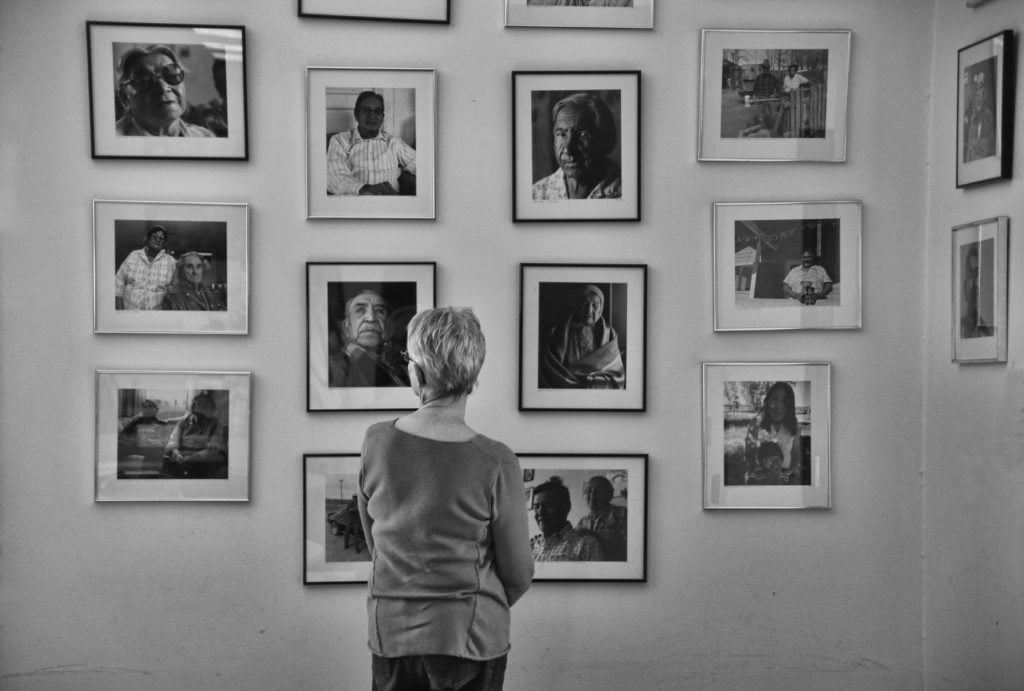
When it comes to the people of Wind River, Wiles states, the discrimination from people who believe that alcoholism is the only culture on the Reservation is only an excuse for not getting to know the people. Thinking, maybe it’s rooted within fear, Wiles doesn’t agree that addiction is the main reason for discrimination toward the tribes of many reservations. Not liking to confront people, Wiles has developed a character that is reserved for herself within quiet solitude in the understanding of both old timers and new timers, the ones who make up the Wyoming communities in which she resides. A lake of understanding to the people of the Reservation she feels is a good example of her work and the healing it provides to the Wind River Reservation community.
Wiles recalls when a power outage took place in the reservation community and her phone rang, it was her adopted family. They had previous plans to have a birthday party and with the power outage affecting the plan, her adopted family wanted to have the dinner at her house. Fifty people showed up at her residence in Lander, Wyoming where she allowed cooking and socialization to take place at her home. She was the witness to how Native families help each other and respect one another when respect is given. Through this experience, she began encouraging more people to “hang out,” in the Native community. With a sense of learning from a personal perspective and not a culture-grabbing perspective, Wiles wants to leave this knowledge for others to utilize.
Knowing a large percentage of the Wind River population, Wiles hasn’t stopped meeting new people and certainly hasn’t stopped making strong connections with many new acquaintances set to become friends.
“All the old people are gone,” Wiles reflects, remembering how she had been allowed to take pictures of the elders at the local senior centers where her work vividly portrays connections she has made.
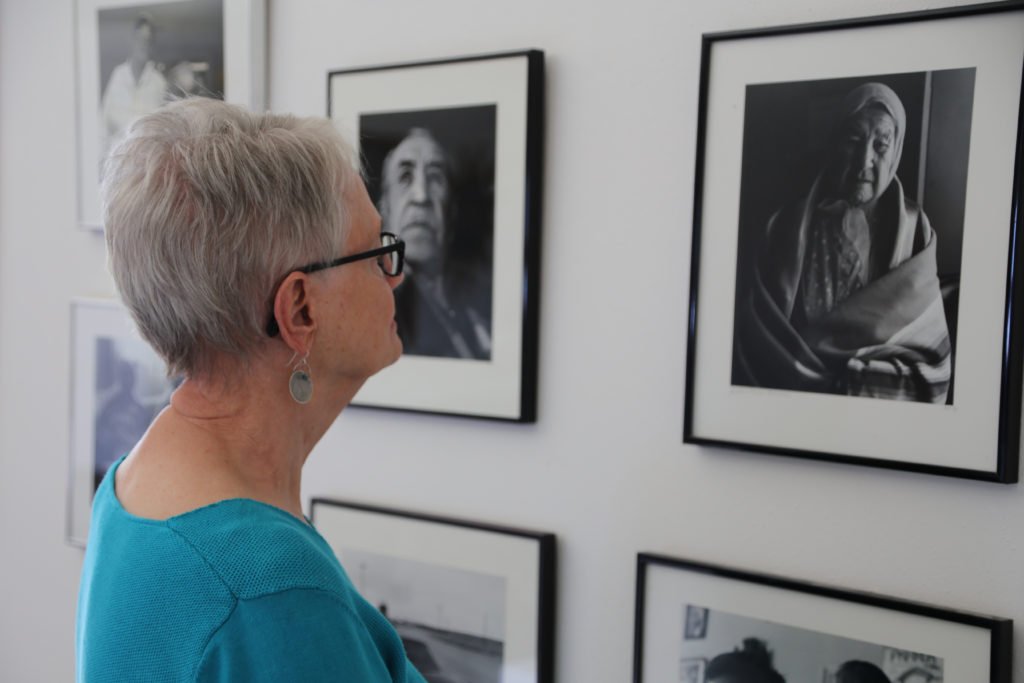
Wiles pays tributes to a man who became her good friend back at Indiana State University who once advised her, “Treat people like people and develop a connection with all,” which is advice she lives up to even today. “Strength is being a part of the healing without knowing you’re a part of it,” Wiles states. Knowing the Wind River Reservation adds value to her book Arapaho Journeys, in it, she shares many of the stories told by the Native elders who are no longer here. Story after story her book is full of stories and photographs, bringing alive the memories of those no longer here. Wiles used seven years of her time to finalize what has kept valued memories sacred.
In her second book, which will be released soon, Wiles continues sharing interviews and photographs of those who didn’t fit into the pages of her first book. Telling exactly how things were from the 1930’s, Wiles develops the images of her found friends through stories of the boarding school era, through conversations, and through making connections. All the while she provides a bright light of hope for today and into the future.
Sara Wiles is a Wyoming woman who I feel has helped shape a community by taking life’s points, leading them through what the universe speaks. Wiles says she isn’t scared of the Reservation because the Reservation is her home, and she strongly encourages others to live by her example. Sara Wiles’ second book, The Arapaho Way: Continuity and Change on the Wind River Reservation is was released on November 1, 2019.
